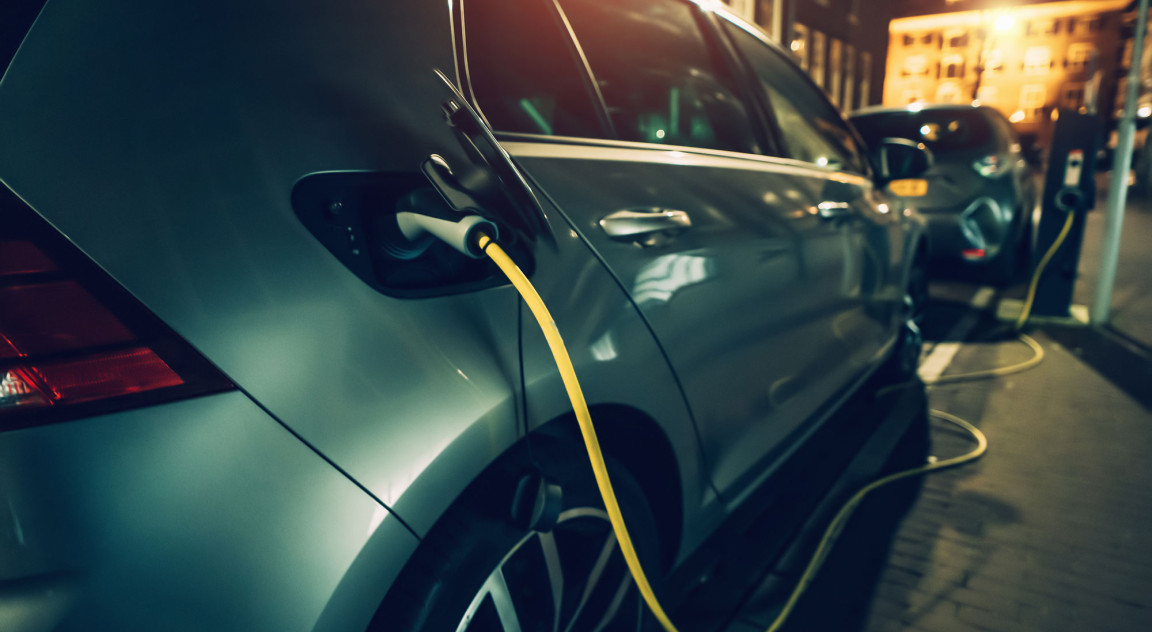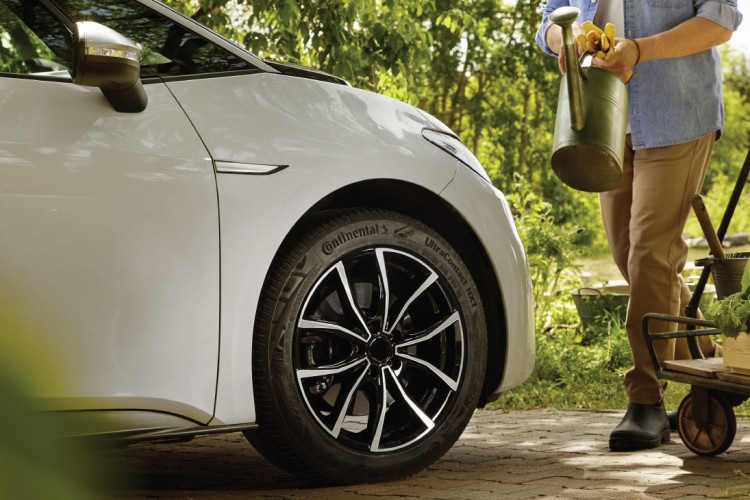Reducing our impact on the planet
We see the future as one of sustainable mobility. A future that we will be proud to hand on to our children and grandchildren. That vision is underpinned by our belief that mobility and environmental protection need not, nor should ever be, mutually exclusive.
In order to make the tyres of the future ever more energy-efficient and environmentally friendly in terms of production, use and recyclability, we are systematically investing in the research and development of new technologies, alternative materials, and environmentally compatible production processes.
Some of the sustainable tyre technology we’ve developed includes:
Tyres that reduce fuel usage Efficient mobility with lower energy consumption
Our tyre development engineers have achieved some remarkable gains from material use which has led to dramatically reduced fuel usage for drivers. By substantially reducing rolling resistance, vehicles with internal combustion engines will see reduced C02 emissions, whilst EV owners will achieve greater distances between charges. Tyres such as the Continental EcoContact 6 achieve this without compromising safety, offering the same high braking performance expected from Continental.
Original equipment tyres for electric vehicles
In 2020, six of the world’s ten highest volume manufacturers of electric vehicles relied on the technological expertise of our engineers to develop their OE fitment tyres. This includes some of the most well known and widely sold models, such as those from Tesla with its Model 3 and Model S. With tyres accounting for up to 20% of the total resistance, reducing the rolling resistance can have a meaningful impact on EV ranges. Given range between charges is one of the barriers many voice against EVs, helping increase range will greatly help uptake and the transition to greener mobility options.

Six out of the world's 10 leading EV manufacturers choose Continental as original equipment tyres.
Tyres that reduce new material requirements New tyres from repurposed consumer waste
From 2022, we have begun to use recycled plastic from plastic bottles in tyre production. The new sustainable polymer yarn is obtained from polyethylene terephthalate (PET) bottles.
The PET bottles have their caps removed, are sorted and then mechanically cleaned. Next, they are shredded, melted down and granulated. This is followed by solid state polymerisation and a modified spinning process. The end result is a polymer yarn which is as strong as virgin PET. Up to 60 plastic bottles will be used in a full set of tyres, reducing landfill and further committing our operations to a circular, more sustainable economy.

Rubber from dandelions
Locally sourced, sustainable raw materials
Most people view dandelions as a nuisance. But here at Continental, we embrace the flowering weed as a key component to the future of the rubber industry and tyre production. In conjunction with The Fraunhofer Institute and other organizations, we have produced and tested the first commercial tyres using natural rubber latex generated from the Russian dandelion, or “Taragaxum.” We view this as a critical step in the protection of the world’s most precious rainforest areas and reducing the carbon footprint of the rubber industry. You can read more on this development here.

Old rubber for new tyres
Rubber has mostly always been downcycled. Old tyres are destined to be made into rubber mats for playgrounds or in the worst case scenario, simply stockpiled. We have developed a unique approach to reduce this undesired outcome and make the most of a precious natural resource. The Continental Rubber Recycling Unit is pioneering the use of old tyres in the manufacturing of new tyres. Following a buffering, purification and cleaning process, the old rubber is readied for mixing with new rubber. This reduces the demand for natural rubber and offers many sustainability benefits.
Sustainable value for longer Maximising resources to minimise environmental impact
Correct tyre setup and monitoring can significantly increase tyre life as well as reduce the amount of fuel required by the vehicle. But we're not satisfied with just using resources once. Our truck tyres are designed to last multiple retreads and still deliver reliable fuel economy throughout their tread life.
ContiLifeCycle delivers cradle-to-grave benefits
We have developed a cradle-to-grave approach with real advantages at every step of the tyre's life cycle. By investing millions into research and development every year, we have increased performance and longevity in new tyres. That longevity and efficiency are the cornerstones to providing the lowest overall driving cost, a major benefit of choosing Continental. The innovative 3G casing on truck and bus tyres is standardised across all axle positions and the robust design makes them ideal for retreading. These retreads ‘look like new and run like new’. The ContiTread brand offers many of the same tread patterns and compounds used in our new tyres, delivering a performance you would expect from Continental.
Monitoring sustainability with ContiPressureCheck
Continuous tyre pressure monitoring drives down both the overall operating cost and the impact on the environment. The ContiPressureCheck system, an innovative adaptation to any tyre, constantly monitors the pressure and temperature of all tyres on your vehicle. A in-cab display provides continual updates from the tyres, allowing the driver to take appropriate action when a problem is encountered. This helps to save fuel and increase mileage. It also significantly reduces the risk of tyre failure, whilst maintaining the value of the casing, and thus the retreadability.

Technology and innovation for smart, sustainable value




